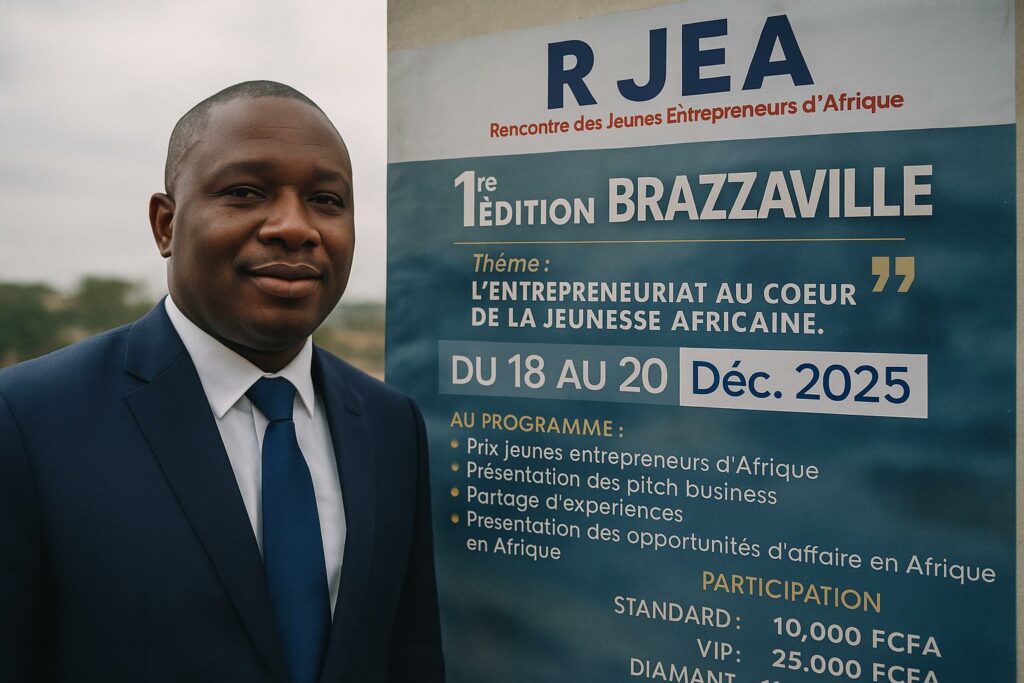Brazzaville poised for a continental crescendo
The Congolese capital will devote three December days to the Rencontre des jeunes entrepreneurs d’Afrique, a first-of-its-kind forum whose stated ambition is to place “entrepreneurship at the heart of African youth”. Organisers have chosen 18-20 December 2025 in order to ride the end-of-year momentum when investors revisit portfolio strategies and diaspora professionals return home for the festive season. By positioning itself at that crossroads, Brazzaville signals both confidence in its own ecosystem and openness to the wider continent.
A rallying point for youth-led innovation
In a macro-economic context still coloured by post-pandemic adjustments and oil-price volatility, the RJEA proposes an alternative growth narrative centred on creativity, digital savvy and cross-border alliances. Its blueprint rests on the conviction—shared by development agencies and private equity alike—that African demographics represent not merely a challenge but an unmatched reservoir of solutions. As one organiser notes, “Every second African is under twenty-five; our task is to turn that statistic into factories of ideas.”
Training, pitching and networking at the core
The programme unveiled in Brazzaville is deliberately dense. Plenary sessions led by acknowledged experts will dissect financing instruments, legal compliance and intellectual-property protection, providing participants with a vocabulary fit for venture capital conversations. The afternoon workshops will simulate due-diligence exercises, while evening pitch sessions allow founders to test their storytelling against a jury of bankers and angel investors. Company visits, a business dinner and cultural interludes interlace the agenda so that contacts forged in the conference hall can mature in more informal settings where trust is built.
Entrepreneurship as vector of sustainable development
Beyond individual success stories, the RJEA stakes a claim in the policy arena: entrepreneurship, the organisers argue, is a lever for social inclusion and ecological transition. By emphasising projects that address energy efficiency, agri-tech or digital public services, the forum aligns itself with regional road maps endorsed by the African Union and the Economic and Monetary Community of Central Africa. Such alignment is likely to resonate with international partners, bolstering Brazzaville’s aspiration to function as a bridge between multilateral funding windows and local talent pools.
Tiered access designed for inclusivity
Mindful of varied purchasing power across the continent, the RJEA proposes three participation formulas: Standard at 10 000 FCFA, VIP at 25 000 FCFA and VVIP at 50 000 FCFA. Each package calibrates access to mentoring sessions, closed-door investor meetings and preferential seating. The price structure thus maintains financial sustainability for the organisers while ensuring that early-stage innovators are not priced out of the conversation.
À retenir
The first edition of the RJEA encapsulates a triple opportunity: it offers young entrepreneurs curated exposure, it showcases Brazzaville’s capacity to host high-impact events, and it introduces potential investors to a diversified pipeline of ventures. The mix of knowledge transfer, deal-making and cultural immersion is designed to convert enthusiasm into bankable partnerships.
Le point économique
With Congo-Brazzaville pursuing budgetary diversification in line with its National Development Plan 2022-2026, the timing of the RJEA is not accidental. SMEs already contribute over 40 % of the country’s non-oil GDP, and authorities have reiterated their commitment to easing administrative bottlenecks for business creation. By convening entrepreneurs from Lagos to Antananarivo, the meeting amplifies those domestic reforms and nourishes a narrative of regional integration through enterprise.
Towards a lasting entrepreneurial ecosystem
If the RJEA delivers on its promise, its legacy will extend beyond three December days. Alumni networks, annual tracking of showcased startups and potential incubation programmes in local universities could institutionalise the momentum. For now, the organisers keep their message concise: “Brazzaville is ready; the continent’s ideas are welcome.” The stage is set, the expectations high, and the countdown to 18 December has begun.

